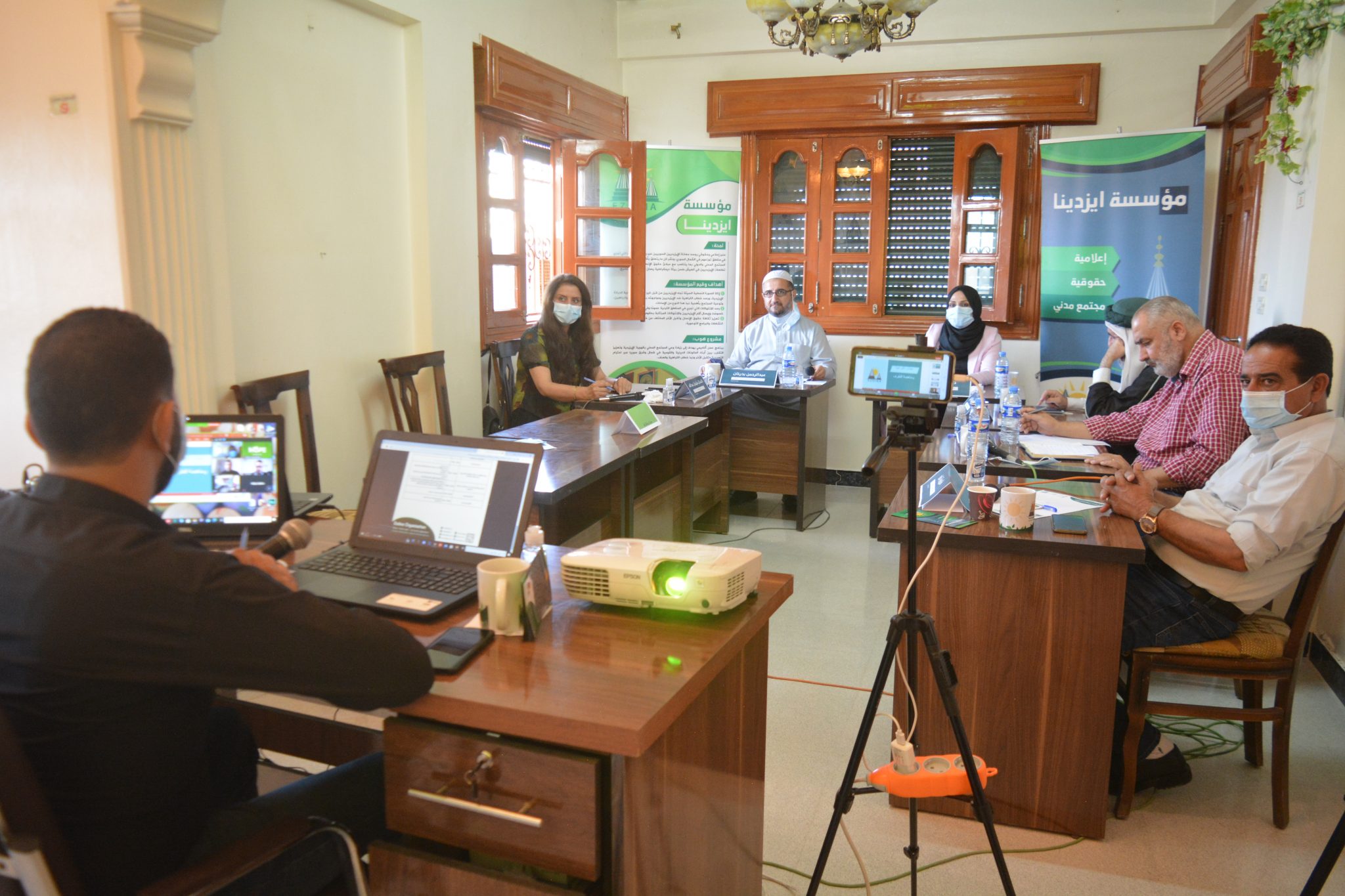Symposium on hate speech held by religious institutions in NE Syria’s Qamishli
QAMISHLI, Syria (North Press) – On Thursday, representatives of religious institutions in northeastern Syria discussed hate speech and extremism at a dialogue session in Qamishli as part of a civil project aimed at introducing the Yezidi religion to a wider audience.
Liluz Mohmamed, coordinator of the Ezdina Foundation, told North Press that the session focused on discussing the role of religion in hate speech and the role of the clergy and religious institutions in combating hate speech and extremism.
About 40 Arab, Kurdish, and Syriac activists, journalists, and human rights advocates from inside and outside the country participated in the symposium via a teleconferencing app.
The project aims to raise awareness of the Yezidi identity and promote rapprochement between religious and national communities in northeastern Syria by respecting pluralism and rejecting hate speech.
”The session took place with the participation of clergy and representatives of Islamic and Christian institutions, at the end of the project named “Hope,” which started about three months ago,” Mohammed added.
The Kurdish-speaking Yezidi minority has been subjected to over 70 massacres throughout their history due to their unique religious beliefs, which their persecutors have labelled as devil worship. The 2014 massacres by the Islamic State in northern Iraq resulted in huge numbers of dead and kidnapped Yezidis, in addition to the destruction of over 70 of their cultural and religious sites.
Earlier this month, dozens of writers and activists in Raqqa participated in a symposium called “I am Yazidi, get to know me,” to discuss controversial points and clarify misconceptions about the Yezidi religion.
Abdulrahman Badrkhan, a member of the Jazira Religious Forum, said ”the dialogue discussed the effects of hate speech on the local community and the role of clergy, community leaders and the media in opposing it.”
Badrkhan noted the importance of highlighting the culture of tolerance among the components of society that includes sects, religions, ethnicities, and nationalities, by civil and religious institutions and the media.
”Ezdina is a civil rights media organization concerned with Yezidi affairs in Syria and the diaspora, and reports of violations in their areas in northern Syria,” he added.

